The Impact Of Travel And Blogging
| by Aracely | 40 Comments » | Ecuador, Reflections, South America
Ever since I can remember I have absolutely loved the idea of travel. When I was in college I pursued a study abroad program in France and I was hooked on travel for life. I knew then that I would do much more of it in the near future and beyond. Nothing feels more rewarding and educational to me than experiencing a new place, language, people, food and everything that comes along with it. My passion for travel made me want to evoke wanderlust onto others.
Travel Blogger Meet Up
The last few weeks we’ve been spending time with a few other traveler bloggers just like us. These are people who are also traveling and sharing their experiences on-line for the world to see. By writing, taking photos and sharing videos, we are all naturally encouraging others to travel to the places we have been or places they have always dreamed of. The point is, the message we all have for others is to get out there and travel.
During our time together we’ve been sharing travel stories, favorite and worst places visited, itineraries and opinions. After a few days full of conversation, I began to notice a few patterns surrounding what we were all discussing.
These were the majority of opinions:
1. Travel is a good thing
If more people travel, the world would be a more empathetic and tolerant place.
2. Remote or less traveled places are much more enjoyable
We prefer the road less traveled, where the local culture has not been impacted by an influx of tourism.
3. Touristy destinations can be frustrating to visit
Tourism typically leads to overcrowding, a lack of culture or native peoples, aggressive sales tactics and a high risk of scams.
4. We can’t stand when situation #3 happens
I think we spent the most time complaining about places that are destroyed due to tourism.
What is the mission of TwoBackpackers.com?
The more I listened to us speak the more confused I became towards my feelings of travel and its impact. Further, I began to question our mission for TwoBackpackers.com, which currently is blogging about our travels and encouraging others to follow suit.
Here we all were talking about how great travel is and how more people should do it, particularly in the United States, since we aren’t known for being world travelers. And here we all were complaining about places that are “too touristy,” where we get bombarded by opportunistic locals wanting a piece of our gringo tourist money.
But aren’t we, the travelers, creating this environment? How can we blame these locals for being opportunistic and trying to better themselves and their families? And wouldn’t we, the travelers, ruin the local remote places we enjoy by sharing our stories with the rest of the world through our travel blogs?
Impact on the Galapagos Islands
It really hit home for me when we spoke specifically about the Galapagos Islands. I was born in Ecuador and the Galapagos Islands have always been a dream destination for me. A travel blogger commented on their experience when visiting Galapagos and it shocked me to say the least. The tour guide they had during their visit, whom was considered reputable, explained that the Galapagos Islands will likely not be here in 20 years due to the exploitation of the tourism industry and the impact it has on the natural wildlife. Jason did some further research and found that the Galapagos Islands were indeed added to the UNESCO’s World Heritage Endangered List on June 27, 2025.
This concept was crippling for me to hear. I began to question my role as a traveler, an Ecuadorian and a world citizen who has never even visited The Galapagos Islands. I regard the islands as a natural wonder and treasure on this planet. Loosing them would be devastating to me, our human history and the future of the world as a whole.
How could I possibly visit the Galapagos knowing that me being there will essentially contribute to their destruction? Further, how could I possibly promote others to visit them? Is travel really a good thing? Do I still want to devote so much energy into making others enthusiastic about seeking travel experiences? I’ve been asking myself these questions a lot lately.
Impact on Me
Honestly, I’ve yet resolve my internal conflict about whether or not I am still willing to visit the Galapagos Islands. However, I have concluded that my message about travel to others needs to be much more focused. I have learned that the simple message, “Travel is good for the world,” is not entirely accurate. Too much is ignored when making such a general statement.
Travel must be environmentally responsible, socially beneficial for the host country and it should build a healthy relationship between the visitor and the host. Personally, I believe this starts with the traveler. In this particular case, it begins with me.

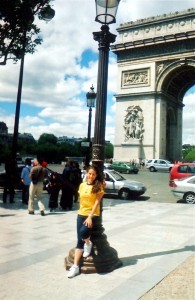
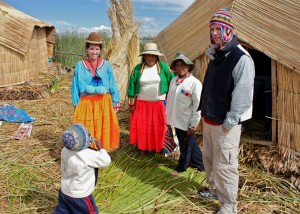
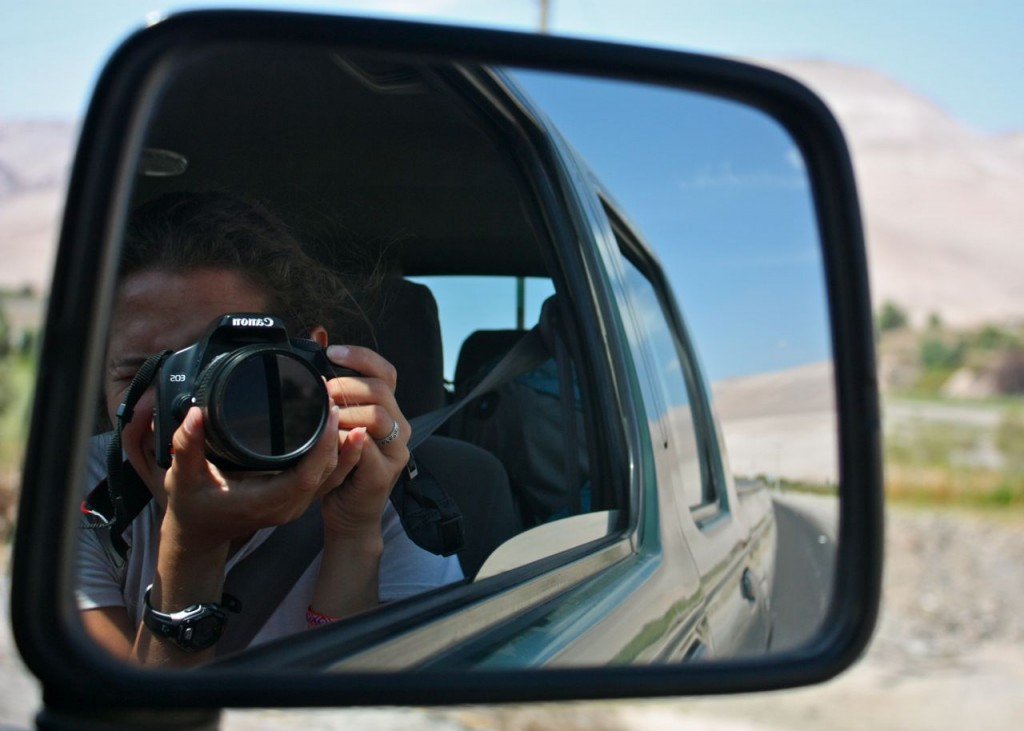
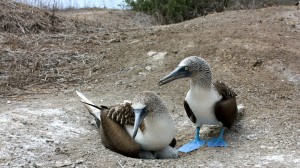
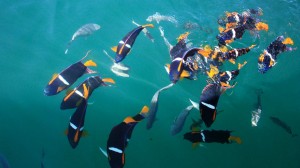
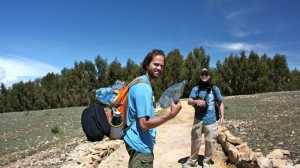
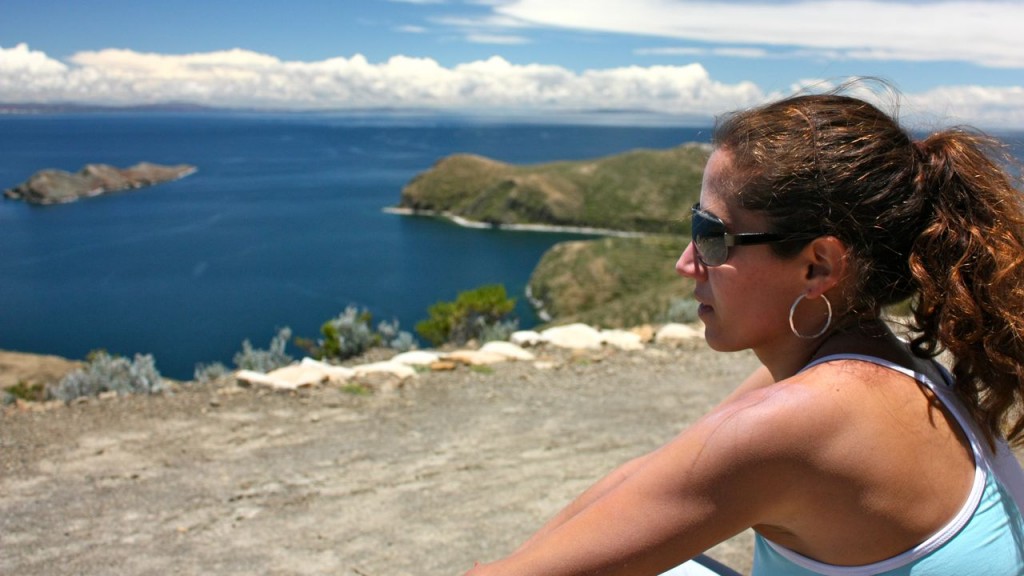














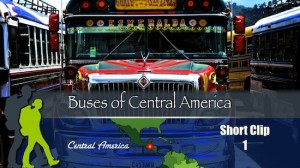


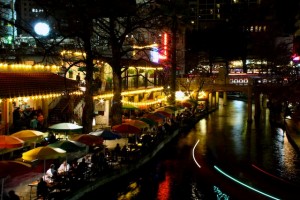
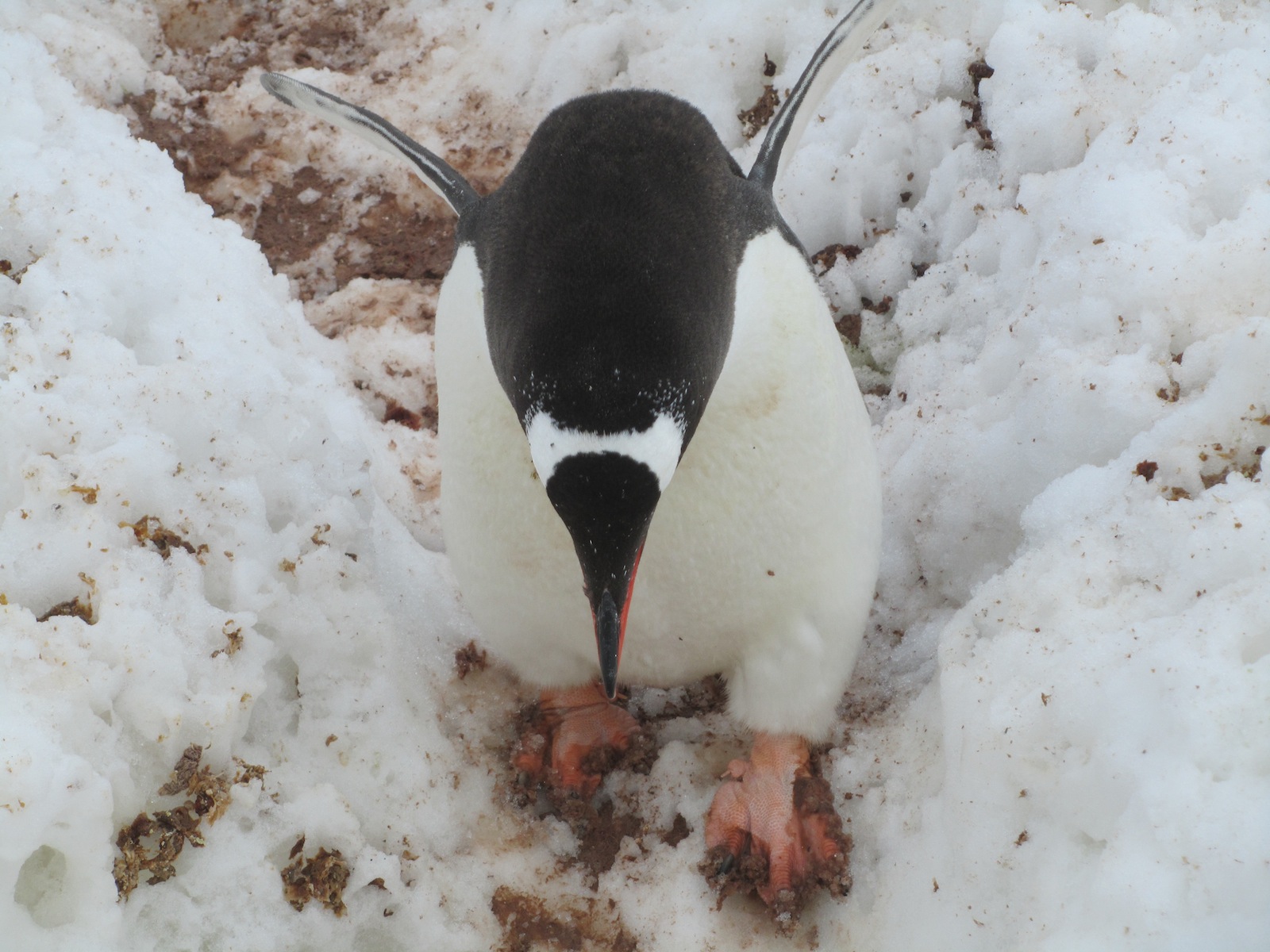
Travel isn’t static and the places that were once isolated are now easily attainable, therefore more tourists go there. That doesn’t mean the experience of isolated wonders aren’t there, we just need to look for them.
I also think that as more people travel the demand for environmentally conscious travel will become more important, in some cases only because there is a business model for it.
Ayngelina, I agree with you, isolated wonders still exist and as a travel blogger I want to share these wonders with others, but I also want to protect them from being exploited. And you’re right, there is a business model for environmentally conscious travel but I fear that many times local social development is ignored.
I’ve had the same moment of reckoning myself (http://bit.ly/9P0vW4). To me, your latest batch of conclusions sound exactly right. As people who promote travel to sizable audiences, we have to indicate that all travel must be green and mutually beneficial. Great post, wish I could have been down in Argentina with the crowd! I’m planning to be there this Oct/Nov.
Thanks Keith for sharing your post as well.
This is a great post.
As much as you’re worried about visiting somewhere that will have an impact, I think the fact you’re aware of it makes the story even more interesting to read. Travellers change every destination, whether it be a big city or tiny village. The important thing is to take care of the places our feet land on. In the end, it’s the lesson of understanding different cultures and habitats that make all of us better people, and hence a very important lesson for anyone of any age.
Keep blogging.
Thank you for the comment and the encouragement to keep blogging. Travel blogging is a trend that is growing quickly and I’d like the contribution of Two Backpackers to be a positive one, not only for the places we travel but also for our fellow travelers.
Beautiful, thoughtful post on the impact of traveling!
Excellent post! I wish every travel writer and blogger would truly keep these things in mind and promote responsible, green travel. I think every one of us have a duty to educate the public and set the example of truly green, sustainable travel and lifestyle.
Travel IS a good thing, but much depends on HOW one does it and what writers/bloggers etc promote.
I love this proverb:
“Tourism is a like a fire, you can cook your dinner on it, or it can burn your house down.”
Sadly many who promote travel and tourism and write about it are just out to make a buck and don’t care a bit about the planet or what future generations will miss.
That’s an excellent quote. And you’re right, most of our most powerful tools and resources can be used or abused.
That said, I do tend to believe the bulk of the travel blogging community tends toward supporting the environment, local culture and maintaining a necessary balance with the world in which we live.
I’m glad I had a chance to be a part of these discussions, because I also heard what happened in between. But I think, at base, you get to the heard of the matter here.
Everything starts with us. We can choose to travel cleanly and respect the areas we visit. We can choose slower travel, travel that doesn’t impact the environment and wherever we go turn to local products and produce.
In a sense, backpacking is a good way to go. If everyone made the footprint a backpacker made, we wouldn’t have nearly the environmental issues we have.
Very beautiful and touching post! I too think about these issues when I travel as well and I haven’t come up with the perfect solution. I hope that you can figure out a way to visit the GI without feeling guilty.
Thanks Andi, I think I would have to give back in a big way before I can visit GI without feeling guilty, which is fine with me. I just hope I can do it sooner rather than later in case they really do disappear in 20 years.
Aracely and Jason: this technologically challenged writer just had a brilliant set of sentences wiped out as a result of overlooking the captcha code. The fact that I have no idea whether that code transfers all my worldly assets to a Swiss bank account set up to feed the poor of Guatemala is beside the point. Three pithy statements are applicable in any case: (1) do not let the perfect be the enemy of the good, (2) foolish consistency is the hobgoblin of small minds, and (3) distance does for love what the wind does for fire: it extinguishes the weak and feeds the strong. The relevance of these varies, but I stole them from smart sources so they must be useful. Did I mention I am a big fan of travel, especially when done before commitments get in the way and philosophy becomes tied to daily demands.
Bob: Thank you for the point “don’t let the perfect be the enemy of the good.” If you don’t mind, I used it in another article.
Thoughtful article. It is a real challenge that some of the world’s most beautiful places are being loved to death, some by thoughtless travel but some simply by too much travel. Sadly there is only one solution to this – maybe places like the Galapagos will need to have some tourist-free months, but that impacts on many people’s ability to earn a living. It is a difficult challenge of our modern times. Enjoyable discussion.
Mark, I like how you put that “places are being loved to death.” Sadly, it’s true. When I think about this, I feel like there has to be a solution but every time I come up with the same answer. We would have to start the tourism model from scratch. Which is very unrealistic at this point. Thanks for being a part of the conversation
I am late to this discussion, but was fortunate to be part of the original discussions with the two of you while drinking wine in the evenings in northern Argentina. While I agree that there are harmful effects of increased travel in places, especially with mainstream and big tour type of tourism, there are many benefits that can happen for the local community and for individuals through tourism “done right” and perhaps this is the role that travel bloggers can play. Perhaps there should be a badge or club of “socially responsible travel bloggers.”
For example, how can regular individuals travel and visit all these places while reducing their environmental and cultural footprint, while trying to leave a positive impact from their visit (e.g., through business development or helping someone learn/practice language). We were recently contacted by a woman who saw our article on an organization in Livingston, Guatemala that is helping preserve and promote Garifuna culture. She went to Livingston, connected with this NGO and is now volunteering with them for several months to build an organic garden. I think that’s the type of positive impact travel bloggers can have with helping shape people’s travel plans and how they approach travel.
Thanks for bringing this discussion to the online world. There’s been some interesting perspectives here!
it’s a catch 22 isn’t it. Don’t really know the answer to the question either.
Excellent post. I too have made the somewhat painful realization that the majority of people that I meet abroad are anything other than American. If more Americans traveled, perhaps we would not have the negative stereotypes that we do. It’s not all beer and fireworks and suburbs and 2.5 kids. Just this week I flew through Vegas and the TSA guy checking my ID commented that he rarely sees people from my state, West Virginia. This lack of exposure is even worse in places like my home. I teach and I try to expose my students to a different way of life with each lesson. In WV, this may be all some kids will ever see or know.
I recently took a RTW trip and agree with the opinions you listed. It was great to meet so many people from other countries, but it also made me realize how many Americans (especially per capita) miss out on international travel experiences. I too had qualms about visiting the Galapagos, but the opportunity presented itself a couple years ago. I was pleased to find it much more pristine than expected – I didn’t see a single piece of litter in 9 days on 7 islands. The tour companies staggered excursions to the islands so there was only one group in an area at a time (our boat had 14 people), visitors are required to be with a guide in many areas, visitors stayed on the marked trails so as not to disturb nesting habitats, and our guide (he was a native of one of the islands) was very respectful of the environment and its wildlife. I still think it needs to be fiercely protected with the number of tour operators/visitors limited and I’m sure not all visitors or residents are as conscientious, but I was encouraged by what I witnessed. It is an AMAZING place!
Thanks for sharing your experiences Kristi. I am glad to hear how concerned, the people you were in contact with, were about the ecology of the islands. It’s such a perfect example of nature at it’s finest, but so fragile in our now industrialized and over populated world. We will get there someday, I am sure.
Very nice article and so true! It starts with me & you & every other traveler!
And still I would say: “Travel is good for the world,” but we could & should still make it better than it is now!
I do believe travel is good too, we just have to aim to be responsible travelers.
After reading this post a few months after you posted it, I am curious if you have resolved your Galapagos visit dilemma? I too was unaware of it’s seemingly inevitable fate, and also was hoping to see the islands some time. It feels so strange, especially since the companies we use to send clients there boast their environmentally unobtrusive tactics. Maybe too many “green” companies can still have the impact of one or two “normal” ones?
Hi Travelerkate,
We have not been to Galapagos yet but I decided that I do want to plan to go. However, I don’t want it to be just on a tour. I would like to visit the Islands with the purpose of voluteering in some sort of an environmental project. I’m not sure the time line or exactly how to make this work. But I am keeping my eyes and ears open for such an opportunity.
This is something I have often thought about, especially when I was still on the fence about delving into the travel writing world. I think it’s great that you put out this post. We all need to be more aware about the message we are sending to people about travel. I like your idea about focusing more on teaching people to be more conscious about the effect they have on the places they are traveling.
Congrats on a wonderful post that accurately summarizes what many of us think and talk about. The key (when promoting travel) is that we must promote responsibility in the same breath, just like you said. Well done!
Travelers have to be environmental conscious, bloggers should always stress on this fact and hopefully people will consider this when we write about relatively lesser known places. While your post perfectly sums up the ecological effects of mindless commercialization fueled by the tourist influx, there is one more thing we need to consider.
Even I had the same questions in mind. Having explored the relatively lesser known places of India, I used to wonder how fair is it of me to hide the information from potential tourists – responsible and irresponsible. But then later I realized who was I to decide these places shouldn’t see much development and retain their culture for the sake of few travelers who stumble upon to witness the exotic and unknown. It is up to the people to either want to retain their culture or adapt to new lifestyles. I think it is selfish of tourists to ask for remote places to stay remote at least when it is inhabited by people. It is just as selfish as destroying the sensitive eco-balance of remote places teeming with other life forms.
This is an excellent point you make. I too have been around travelers that get mad because they see locals in a remote area using cell phones. They use cell phones because it makes their lives better, just like it makes our lives more efficient or better. You can’t be mad just because they are trying to advance. I agree with you.
Travel alone isn’t to blame. Irresponsible travel, just like living in one place irresponsibly, is what damages the world.
Many ecosystems were destroyed without anyone caring because people didn’t travel there. Travelers can help show that every community deserves to be preserved.
You are right and I believe tourists can play a major role in educating some local people to teach them to cherish the beauty of their sights, environment, monuments, etc.
Rahman Mehraby
Destination Iran Tours & Travel
I agree, we can all help during our travels. And we can all help at home, where we live too.
I had the same dilema; while traveling through my country (Romania) I kept complaining of the lack of advertisement for the so many beautiful places to see. Bu then I was thinking that a better infrastructure and better services would just bring too many tourists and spoil nature with is selfish in fact. A solution would be, besides our own personal responsible behavious, to promote, through blogging, some “good manners” for travels. You would be very god at that I’m sure. We could try
I think we can and most certainly should try. Thanks Anca.
I’ve thought about this a lot, too. The answer (I suppose) is to promote sustainable tourism. But then that becomes it’s own dilemma. It is not realistic for governments that will not promote or support sustainable tourism, there still needs to be a consistent flow of tourists to support some local economies, and what if you want to travel somewhere but cannot afford the sustainable alternative? etc etc
I’m in Costa Rica, which has definitely seen it’s share of tourism. A lot of the people here do their part in helping to preserve the natural environment, though. An example – we went to Volcan Irazu a couple weeks ago and witnessed a group of about 5 gringos cross the fence and go trampling about the volcano in the off-limits area. Well, all the Ticos that were watching became outraged, yelled at them to get back on the correct side, and even took videos. The videos were shared with the Volcano employees and then the gringos were kicked out of the park. The message was clear – respect our nature or say goodbye to it. If only that message could permeate through everyone.
Erin, it is a difficult dilema. And you point out a very important piece of ecological protection. The cost. It’s expensive to be concerned with the environment. It’s why poor people can afford organic foods, environmentally sound products and electric cars. They are expensive. The same holds true for the incredible eco lodges in Cost Rico. Many of them are extremely concerned with the environment and have invested heavily in eco friendly power, plumbing and food. But, they cost a fortune to stay in. We just all need to be conscious of what is good and bad and practice that as best we can. Unfortunately, we know that not everyone is good.
One of the most disrespectful to the locals form of tourism I know is slum tours. The locals must feel like caged animals with those large buses driving by and black lenses boring in their faces. Where do we think that the locals get the idea that white people are wealthy targets from? I’ll tell you. These tours! It’s disgusting how these tours let tourists off buses, in the middle of impoverished communities to ‘take pictures with the locals’ for their scrapbooks. And, of course, bc they are ‘so cute’, the tourist gives the kids money. Now, kids are trained to look for these buses and swarm them, knowing that their smiles will earn them money.
I agree Erika. There was a really good New York Times article about this last year. I will see if I can find it.
I could relate 100% to your post. As a former RTW traveler, I’ve seen how tourism (and yes, backpacking counts in that category) can transform a community. I think many travelers face this sort of dilemma; we always want to discover ‘new’ destinations and get off the beaten path, but by writing about and promoting these destinations we are helping create new tourism hubs (and even backpacker ghettos). I don’t know what the solution is… and I doubt anyone does. But it’s a healthy debate to have!
You summed up this article very well Leslie. That’s exactly how we feel.